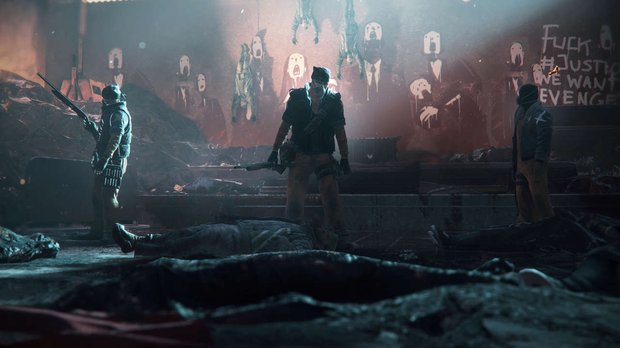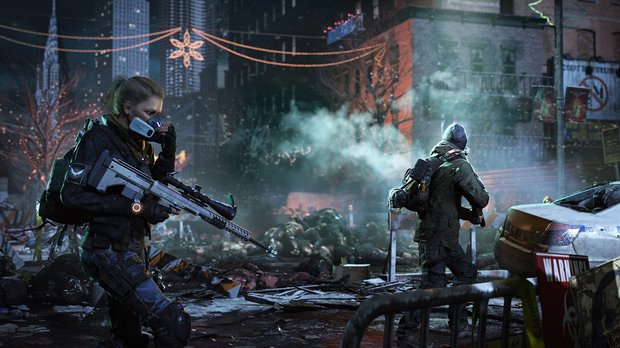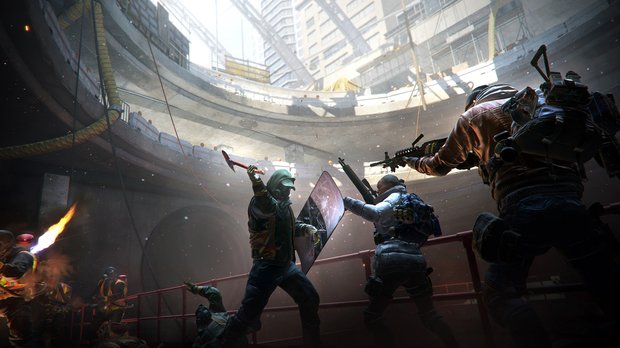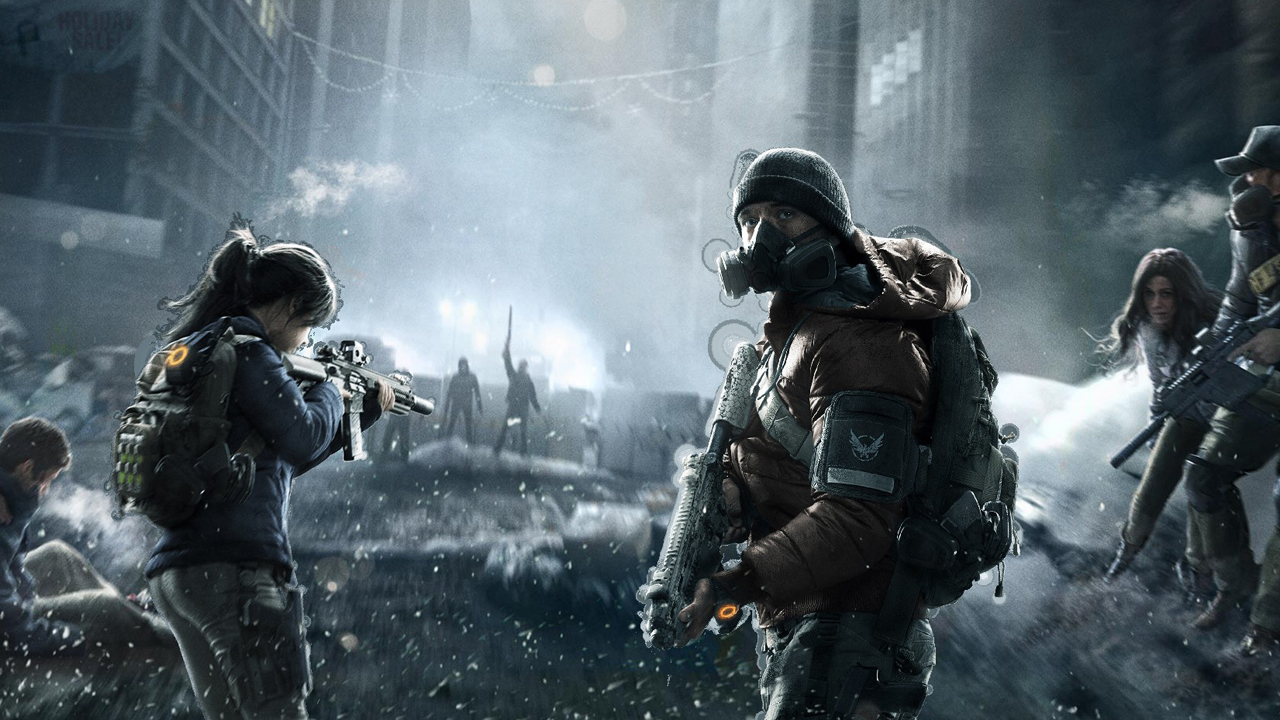The Division's confused morality is easily its darkest secret
Games aren’t fables (well, most of them aren’t - apologies to Lionhead). They don’t require a message or a tidy moral to give them weight. Their purpose is to entertain, and for the most part The Division does a fine job of that as a solid, if unexceptional, looter-shooter with a familiar Ubisoft core.
Vote for The Division in the Best Original Game and Best Multiplayer Game categories at the upcoming Golden Joystick Awards 2016 and claim three games for $1 / £1 for taking part.
But if your game isn’t designed to explore weighty themes, it’s probably best you avoid them entirely. This is where The Division fails. Its setting and story are hovering on the periphery of issues like racial tension and police brutality, but instead of giving these subjects any real sort of room to breathe and expand, they’re gestured at in a way that feels obligatory. The impression you get as a player is that the writers (or designers, or publisher, or platform holder, or whomever) are wildly uncomfortable with confronting any of these potentially volatile issues and worried that they’ll disrupt the core gameplay, which involves a lot of shooting other human beings to death. But at the same time, those issues are unavoidably present, so they can’t be wholly ignored, either.

The result is an awkward narrative that leaves me with a feeling akin to vague mental nausea anytime the action pauses long enough to let me reflect on what I’m doing in this urban wasteland, haunted as it is by these wasted spectres clinging to the pale vestiges of their humanity.
I won’t speculate on The Division’s (lengthy) development process, but the sensation you get is one of a team divided. On the one hand there are the handful of audio logs and Echos that occasionally humanize your enemies, giving us glimpses of frightened people unaccustomed to violence. We get kids or young adults who have clearly never handled a firearm being instructed in how to intimidate unarmed people into turning over their food or water, or describing how they came to feel joining a mob of armed rioters was their only good choice in a world sliding towards madness.
Then there are the occasional half-hearted attempts during boss encounters to make the enemies seem multi-dimensional and motivated by something other than bloodlust. These tend to be the most jarring examples of purely gestural morality: you chew up dozens of people in staged firefights, leaving their lead-pulped bodies evacuating gallons of blood in your wake, and then when you get to the boss he or she tosses off a throwaway line about how they were ‘just trying to do the right thing’ or a clumsy variant of ‘black lives matter’.

Of course, if you did feel a moment’s hesitation in any of these scenarios, it wouldn’t matter. To be clear, the game absolutely requires that you murder every hostile it throws in your path, whether they look like the long-suffering urban poor every real New Yorker is familiar with, or a prison escapee, or a nutjob in a hazmat suit.
Sign up to the GamesRadar+ Newsletter
Weekly digests, tales from the communities you love, and more
To make you feel better about all this homicide, the game takes steps to strip away the individuality of your enemies. Almost all the people you gun down are very intentionally faceless, any distinguishing or humanizing features disguised behind hoodies, balaclavas, bandanas, glasses, or helmets. And the dialogue describing mission objectives is usually careful to portray them as remorseless killers. The ‘cleaners’, maniacs with flamethrowers and a twisted sense of salvation, come off pretty universally as sick psychotic fucks who burn innocent people alive in their cars or homes.
But one of the factions is variously described as ‘looters’ or ‘rioters’. Imagine if the Los Angeles Police Department deployed heavily armed vigilantes with live ammo assault rifles to quell the LA riots by mowing people down indiscriminately.

And then there's the ‘Rikers’. Sure, some prisoners are probably savage killers and real menaces, but a large number of people in US prisons are there on drug charges and for non-violent offenses. And yet we mow down these Riker Island escapees in droves, in such staggering numbers you start to wonder just how big that prison was.
The New York of The Division feels like a city in the desperate throes of a crisis, something not unlike post-Katrina New Orleans mixed with a city under siege by ISIS. The confusion (and the harsh penalty for being caught in the open in a firefight) meant there were several times where I opened fire on a group of people only to realize they were civilians.
Any halfway wary player is carefully assessing threats from a safe distance and then annihilating them with head shots or tagging them with high explosives and detonating them next to their friends. In a large percentage of my encounters with enemies in the game, they're all long dead before they have the opportunity to take any hostile action. These frequent instances of hypermurder, before it’s even completely clear your targets are armed, don’t do anything to tamp down the feeling you’re just slaughtering anyone unlucky enough to be caught outside when The Division’s kill-squad wandered by.

In another world, I like to think there’s a version of The Division that’s as much game as an interesting art piece with a potent message, an evolution of the radical sort of storytelling attempted in Spec Ops: The Line. Sadly, in our world, it’s a Frankenstein’s monster of diluted themes and scattered writing that leaves me feeling confused, and more than a little dirty, about my role in it.
Alan Bradley was once a Hardware Writer for GamesRadar and PC Gamer, specialising in PC hardware. But, Alan is now a freelance journalist. He has bylines at Rolling Stone, Gamasutra, Variety, and more.



